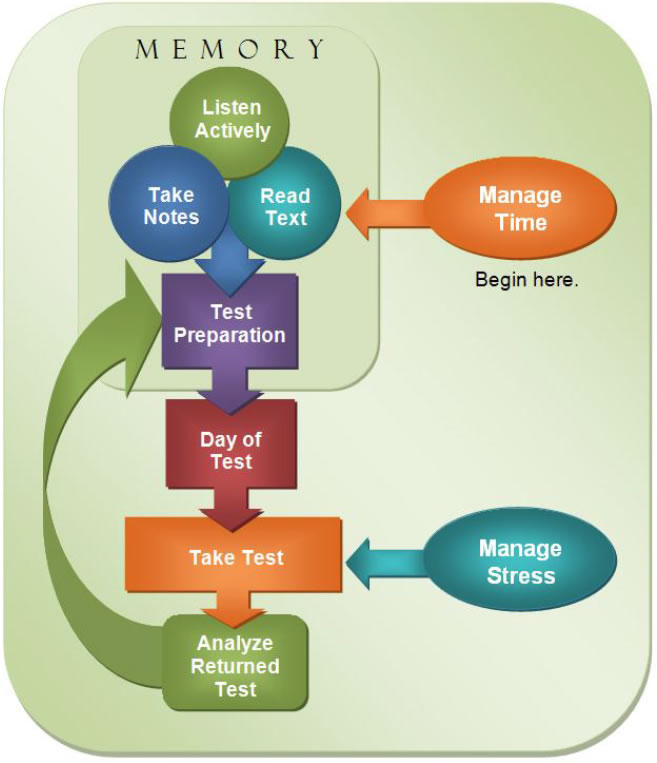Are you ready to excel in college and achieve academic success? Look no further! This article will provide you with valuable tips and insights on how to navigate the college experience and reach your full potential.
By developing effective time management skills, setting priorities, and staying organized, you’ll be well on your way to achieving academic excellence.
First and foremost, mastering time management is essential for success in college. With numerous assignments, projects, and exams to juggle, it’s crucial to prioritize your tasks and create a schedule that allows for efficient use of your time. By doing so, you’ll be able to stay on top of your coursework and avoid last-minute cramming sessions.
Additionally, staying organized and managing deadlines will help you stay focused and avoid unnecessary stress. With these strategies in place, you’ll be able to make the most of your college experience and achieve the academic excellence you desire.
Developing Effective Time Management Skills
Mastering time management is like conducting a symphony within your mind, with each task and deadline harmoniously playing its part. To excel academically in college, it’s crucial to develop effective time management skills.
With the countless assignments, projects, and exams that come your way, efficiently utilizing your time becomes essential.
The first step to effective time management is creating a schedule. Start by identifying your priorities and allocating specific time slots for each task. This will help you stay organized and ensure that you give adequate attention to each assignment.
Additionally, try to break down larger tasks into smaller, manageable chunks. By setting realistic goals and deadlines for yourself, you can avoid feeling overwhelmed and increase your productivity.
Remember, time management isn’t about doing more in less time, but rather about doing the right things at the right time.
Setting Priorities and Creating a Schedule
Juggling classes, extracurriculars, and a social life can be a challenge, but one way to stay on top of everything is by creating a schedule that works for you. Setting priorities and creating a schedule allows you to allocate your time effectively and ensure that you are giving adequate attention to all aspects of your college life.
Start by identifying your high-priority tasks, such as attending classes, completing assignments, and studying for exams. These should be the non-negotiables in your schedule. Once you have these established, you can then allocate time for your extracurricular activities and social commitments. By setting clear priorities, you can ensure that you are devoting enough time to each area without feeling overwhelmed or neglecting any of them.
Creating a schedule also helps you manage your time efficiently. Start by using a planner or a digital calendar to map out your weekly and monthly commitments. Break down your tasks into smaller, more manageable chunks and assign specific time slots for each one. Be realistic about how long each task will take and allow for breaks in between to avoid burnout. Remember to also schedule in self-care activities and downtime to recharge.
Having a visual representation of your schedule will help you stay organized and accountable to your commitments. It will also allow you to identify any potential conflicts or overlapping deadlines ahead of time, giving you the opportunity to plan accordingly and avoid last-minute stress.
By setting priorities and creating a schedule, you can effectively manage your time and ensure academic excellence while still enjoying a well-rounded college experience.
Staying Organized and Managing Deadlines
To stay on top of your workload and meet deadlines, it’s important to keep yourself organized and develop effective time management strategies. One way to do this is by using a planner or a digital calendar to keep track of your assignments, exams, and other important dates.
Write down all of your deadlines and break them down into smaller, manageable tasks. This will help you prioritize your work and ensure that you’re not leaving everything until the last minute.
Additionally, make sure to schedule regular study sessions and allocate specific blocks of time for each subject. By creating a schedule and sticking to it, you’ll be able to stay focused and avoid procrastination.
Another key aspect of staying organized and managing deadlines is to create a clutter-free workspace. Keep your study area clean and free from distractions, such as your phone or social media notifications. Having a dedicated space for studying will help you stay focused and be more productive.
It’s also important to stay on top of your assignments by breaking them down into smaller tasks and setting specific deadlines for each. This will help you avoid the stress of trying to complete everything at once and ensure that you’re making progress on each assignment.
By staying organized and managing your time effectively, you’ll be able to stay on track, reduce stress, and achieve academic excellence in college.
Taking Breaks and Resting for Optimal Productivity
Boost your productivity and recharge your energy levels by taking regular breaks and allowing yourself time to rest. It may seem counterintuitive, but taking breaks actually helps improve your focus and concentration.
When you work for long periods without giving yourself a break, your brain becomes fatigued, making it harder to retain information and stay motivated. By taking short breaks every 60 to 90 minutes, you give your brain a chance to recharge and reset. Use this time to step away from your desk, stretch your legs, or do something enjoyable to relax.
When you return to your work, you’ll find that your mind is clearer and more alert, allowing you to tackle tasks with renewed energy.
In addition to taking regular breaks, it’s important to prioritize rest and relaxation in your college routine. Getting enough sleep is crucial for cognitive function and academic success. Aim for 7 to 9 hours of quality sleep each night to ensure that your brain and body are well-rested.
When you’re well-rested, you’ll find that you can think more clearly, retain information better, and stay focused during lectures and study sessions. It’s also important to schedule downtime in your day to engage in activities that bring you joy and help you relax.
Whether it’s reading a book, going for a walk, or spending time with friends, taking time for yourself can help reduce stress and prevent burnout. Remember, taking care of yourself is just as important as studying hard, so make rest and relaxation a priority in your college journey.
Strategies for Efficient and Effective Studying
Utilize breaks and rest to maximize your studying efficiency and effectiveness. It may seem counterintuitive, but taking breaks actually helps improve your focus and retention. When you study for long periods without breaks, your brain becomes fatigued and your attention starts to wane. By taking short breaks every hour or so, you give your brain the chance to rest and recharge.
During these breaks, engage in activities that relax and rejuvenate you, such as taking a short walk, listening to music, drawing with a picasso drawing tablet or doing a quick meditation. Not only will this help clear your mind, but it will also boost your energy levels and make you more alert for the next study session.
In addition to taking regular breaks, it’s important to have a strategic approach to studying. One effective strategy is to break your study sessions into smaller, manageable chunks. Instead of cramming for hours on end, divide your study time into focused sessions of 25-30 minutes, followed by a 5-minute break. This technique, known as the Pomodoro Technique, helps maintain your concentration and prevents burnout.
During each study session, eliminate distractions by turning off your phone or using apps that block social media notifications. Create a study schedule and stick to it, allocating specific times for each subject or task. By implementing these strategies, you can make the most out of your study time and achieve academic excellence in college.
Conclusion
In conclusion, being successful in college requires a combination of effective time management skills, setting priorities, staying organized, taking breaks, and using efficient studying strategies. By developing these skills and habits, you can maximize your academic performance and achieve excellence in your college journey.
Remember, managing your time effectively is key to balancing your academic responsibilities and personal life. By setting priorities and creating a schedule, you can ensure that you allocate enough time for studying, attending classes, completing assignments, and engaging in extracurricular activities.
Staying organized and managing deadlines will help you stay on top of your coursework and avoid last-minute scrambles. Additionally, taking breaks and resting for optimal productivity is crucial. By giving yourself regular breaks, you can recharge your mind and maintain focus during study sessions.
Lastly, using efficient and effective studying strategies such as active learning, breaking down tasks, and seeking help when needed will enhance your understanding and retention of the material.
By incorporating these tips into your college routine, you can pave the way for academic excellence and success. Remember, college is not just about grades, but also about personal growth and development. So, take the time to enjoy the journey, make connections, and explore new opportunities.
With dedication, perseverance, and the right strategies, you can thrive in college and achieve your goals. Good luck!


